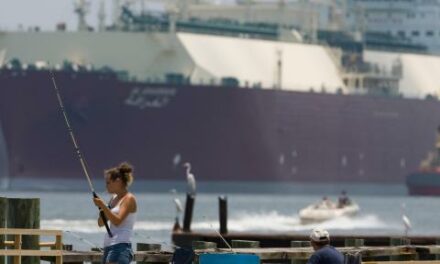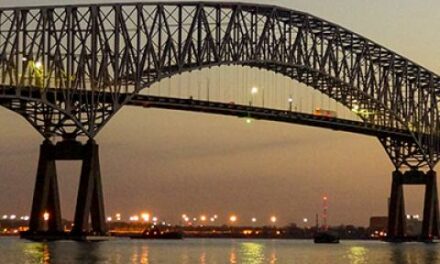We support our Publishers and Content Creators. You can view this story on their website by CLICKING HERE.

After overthrowing the Assad regime, triumphant Syrian rebel groups appear to be on a collision course with the U.S.-backed Kurds, potentially opening a new phase of the Syrian Civil War and pressuring Washington to step in, despite the misgivings of the incoming White House.
The 24-year presidency of Bashar al-Assad ended earlier this month after a sudden offensive from the al-Qaeda derivative Tahrir al-Sham and other rebel groups saw militants burst out of the Syrian northwest and seize most of the country. Assad successfully fled to Moscow and asserted that he had hoped to fight for as long as he could, but that the collapse of the Syrian Arab Army rendered him unable to exert a meaningful influence on events.
Western powers cheered Assad’s ouster, but President-elect Donald Trump warned that the conflict was not over and insisted the U.S. should stay out of affairs in Syria. The U.S. has maintained a presence in the country for years, partially through its support of the Kurdish-led Syrian Democratic Forces (SDF).
During his first term, Trump sought to withdraw U.S. forces from Syria, but faced stiff opposition from Congress and hawkish members of his own administration. His current calls for non-intervention are likely to fall on less-than-receptive ears again as the forces of the new Syrian government clash with the SDF for control of the nation’s northeastern regions and Turkish forces seem primed to expand on their occupation of the nation’s North.
Complicating matters further are the tens of thousands of ISIS veterans in SDF custody who may secure freedom in the event of the SDF’s defeat. The SDF currently controls nearly all Syrian territory on the eastern shore of the Euphrates River, save for a Turkish-occupied strip to the south of Şanlıurfa (Edessa). It also maintains control of portions of the western bank to the south of Raqqa.
“In any event, Syria is a mess, but is not our friend, & the United States should have nothing to do with it. This is not our fight. Let it play out. Do not get involved!” Trump posted this month.
“We’re watching Syria very closely right now,” former Trump National Security Council chief of staff Fred Fleitz said on the “John Solomon Reports” podcast this week. “There’s a rebel group known by the initials HTS, and there have been positive signs so far.” Hay’at Tahrir al-Sham (HTS) is a coalition of northern Syria-based Sunni Islamist insurgent groups that evolved from Jabhat al-Nusrah, or “Nusrah Front,” al-Qa‘ida’s former branch in Syria, according to the National Counterterrorism Center.
“They say they’re going to have free elections. They say they’re going to respect the rights of minorities, but they are an offshoot of al-Qaeda, and they do appear intent on putting back or establishing Sharia law in the country,” he added. “The rights of women are already being restricted. We need to keep a close eye on this. It might work out, but we need to learn from the mistakes in Egypt and in Iraq and not getting ourselves mixed up in nation building in these nations. I think Trump is right. This is not our fight. Let it play out. Don’t get involved.”
Turks vs. Kurds
The Turkish government under President Recep Tayyip Erdogan insists that the SDF maintains ties to the PKK, a Kurdish terrorist organization. Ankara directly occupies two non-contiguous strips of territory along the Syrian border, both of which are adjacent to Kurdish lands.
The Turkish-backed forces now controlling Syria have recently clashed with the SDF, grabbing key positions along the battle lines from their forces. Small-scale ceasefires have persisted in localized conflicts, such as that around the pivotal city of Manbinj, according to The New York Times, but the broader conflict appears poised to escalate into a full-scale clash.
“Turks are causing enormous problems in northern Syria by using the fall of the Assad government to launch a new assault on the Syrian Kurds,” Fleitz said. “The US is close to these people. They’ve been loyal American allies who helped to defeat al-Qaeda. The Turks believe some of them are linked to the PKK, a Kurdish terrorist group in Turkey, and [are] worried about a Kurdish state or semi-autonomous state in northern Syria.”
“What they’re doing is incredibly destabilizing, and I think as an ally of the United States, we have to get them to stand down and find some other solution to this,” he added. “But going to war with these groups in northern Syria, which we’ll probably do with HTS, is just a recipe for unending war in this region. We have to find a way to end this war. It looks like Turkey had agreed to a ceasefire for a while, but I think they’re violating it now.”
Kurds have been a major feature of Syrian demographics for centuries and periodically governed autonomous regions in Syria under Ottoman or colonial governments. They have not, however, led an independent Syrian state from Damascus since the Crusades. The Ayyubid Dynasty, founded by Salah ad-Din Yusuf ibn Ayyub (Saladin) fell in 1260 after the Mongol sack of Aleppo.
Israeli occupation of Mount Hermon
Amid the transfer of power to HTS, Israeli forces occupied Syrian territory beyond the Golan Heights, past Mount Hermon, and to within 15 miles of Damascus. The move comes as Israel continues its clashes with Hezbollah to the West in Lebanon and attempts to pacify the Gaza Strip after more than a year of fighting.
With both Israel and NATO-member Turkey occupying portions of Syria and seemingly poised to do so for an undetermined period of time, the prospect of collision between the two, at least by proxy, appears high. Israel has already targeted Syrian weapons depots near Damascus and across the country, ostensibly aiming to keep the assets of the defunct Syrian Arab Army out of the hands of HTS.
“The Israelis have clearly crossed the disengagement line in Syria, which threatens a new unjustified escalation in the region,” HTS leader Ahmed al-Sharaa aka Abu Mohammed al-Jolani said this week, according to Al Jazeera, a privately owned news organization but funded in part by the Qatari government. However, he added that Syria was not in a position to enter a new conflict after years of civil war.
Rogue elements in Syria
Complicating the prospect of a resolution between Jerusalem and Damascus is the fact that HTS is a sort of coalition force formed from the merger of disparate rebel groups. The extent to which branches of HTS may operate semi-independently now that it has toppled Assad remains unclear.
Potentially providing a window into Syria’s future is the situation in Iraq, where the Popular Mobilization Forces (PMF), a semi-official coalition of militias formed to fight ISIS enjoys recognition from the government. Iran-backed component groups, however, have clashed with U.S. troops in the region, who also have been present at the request of Baghdad.
PMF component militias, in January of this year, staged a drone attack on a U.S. base in Jordan near the Syrian border that killed three U.S. servicemembers and injured dozens more.

 Conservative
Conservative  Search
Search Trending
Trending Current News
Current News 





